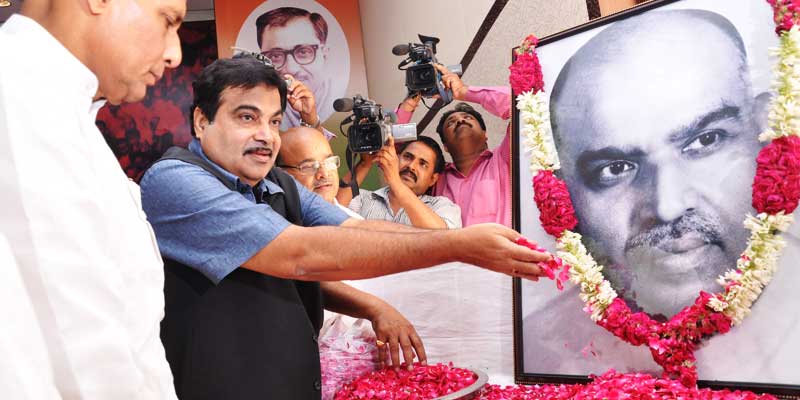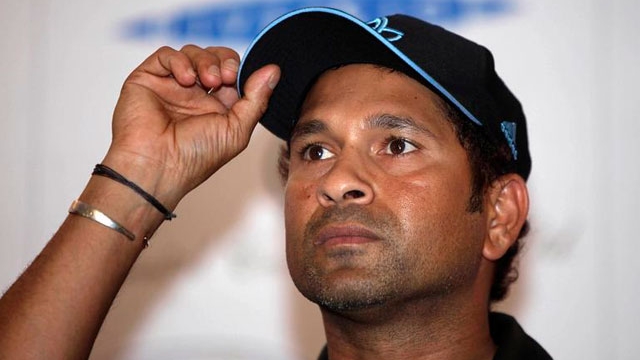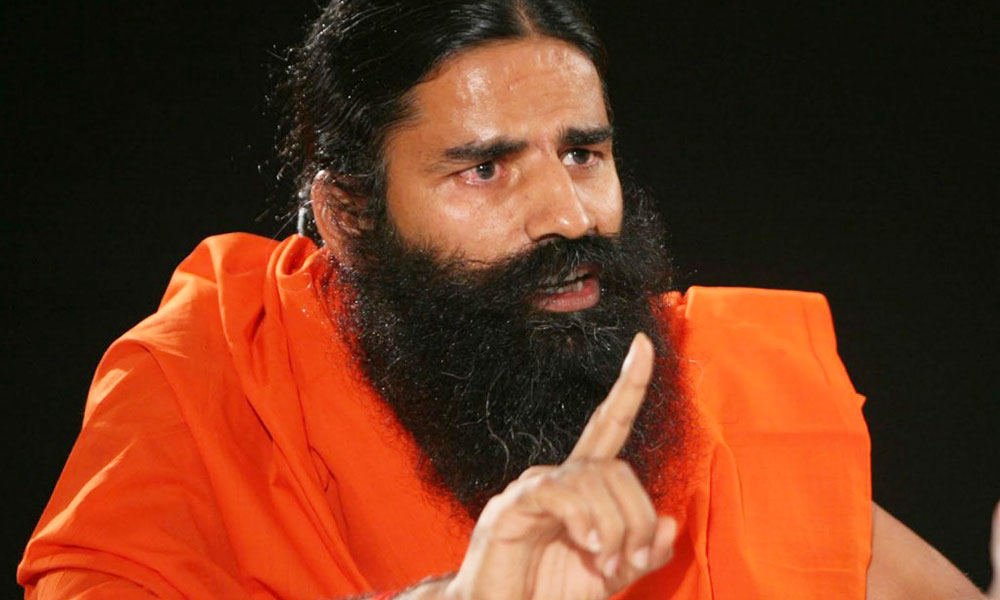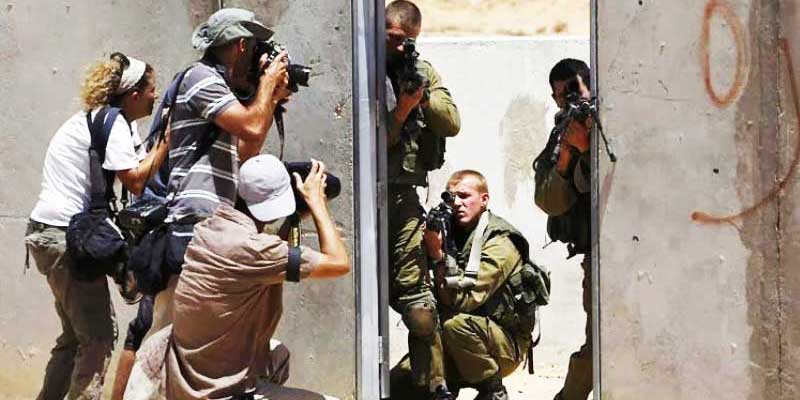Former Prime Minister Atal Bihari Vajpayee had claimed in 2004 that the arrest of Mookherjee in Jammu and Kashmir was a “Nehru conspiracy”.
Dr Shyama Prasad Mookherji was the founder President of Bhartiya Jana Sangha – a party which challenged the Indian National Congress. Today is his 113th birthday.
Dr Mookherjee was born and brought up in a Bengali family in Calcutta on July 6, 1901. He was seen as an introvert, emotional and reflective person who never remarried after his wife of 11 years – sudha Devi – died of pneumonia.
Mukherjee obtained his degrees from University of Calcutta and obtained his BL in 1923. He enrolled as an advocate in Calcutta High Court in 1924 after his father had died. Subsequently he left for England in 1926 to study at Lincoln’s Inn and became a Barrister-at-Law in 1927.
At the age of 33, he became the youngest Vice-Chancellor of the University of Calcutta (1934), and held the office till 1938. During his term as Vice-Chancellor of the Calcutta University he invited Rabindranath Tagore to give Convocation Address in Bengali in 1937, for the first time in history.
Dr Mookherjee started his political career in 1929 when he entered the Bengal Legislative Council as a Congress candidate representing Calcutta University. He was elected too but resigned the next year. Subsequently, he contested the election as an independent candidate and was elected. He was the Finance minister of Bengal Province in 1941-42.
Dr Mookherjee was widely respected by many Indians and also by members of the Indian National Congress, and Sardar Vallabhbhai Patel, one of its chief leaders.
The Muslim League and Mohammad Ali Jinnah’s demands of either exaggerated Muslim rights or a Muslim state of Pakistan irked him. It changed his political outlook and he felt that there was a need to counteract such communalist and separatist tendency. His views were strongly affected by the Noakhali genocide in East Bengal, where mobs belonging to the Muslim league massacred Hindus in large numbers.
He emerged as a spokesman for Hindus and shortly joined the Hindu Mahasabha, becoming President in 1944.
Initially, Dr Mookherjee was a strong opponent of the partition of India, but following the communal riots of 1946-47, he strongly disfavored Hindus continuing to live in a Muslim-dominated state and under a government controlled by the Muslim League.
Due to his disenchantment with the Muslim League, Dr Mookherjee supported the partition of Bengal in 1946 to prevent the inclusion of its Hindu-majority areas in a Muslim-dominated East Pakistan. He also opposed a failed bid for a united but independent Bengal made in 1947 by Sarat Bose, the brother of Subhas Chandra Bose and Huseyn Shaheed Suhrawardy, a Bengali Muslim politician.
On 11 February, 1947, he even told a Hindu rally that if Muslims wanted to live in Pakistan they should “pack their bag and baggage and leave India… (to) wherever they like”.
When Mohandas K. Gandhi was assassinated by Nathuram Godse, the Mahasabha was blamed chiefly for the heinous act and became deeply unpopular.
Post independence, Prime Minister Jawaharlal Nehru inducted him into the Interim Central Government as a Minister for Industry and Supply. But on the issue of the 1950 Delhi Pact with Pakistani Prime Minister Liaquat Ali Khan, he resigned from the Cabinet on 6 April, 1950.
Dr Mookherjee was firmly against Nehru’s invitation to the Pakistani PM, and their joint pact to establish minority commissions and guarantee minority rights in both countries. He wanted to hold Pakistan directly responsible for the terrible influx of millions of Hindu refugees from East Pakistan, who had left the state fearing religious suppression and violence aided by the state. He considered Nehru’s actions as appeasement, and was hailed as a hero by the people of West Bengal.
After consultation with Golwalkar of the Rashtriya Swayamsevak Sangh (RSS), Dr Mookherjee founded the Bharatiya Jana Sangh on 21 October, 1951 in Delhi and he became its first President. In the 1952 elections, the BJS won 3 seats in the Lok Sabha including his seat. He had formed the National Democratic Party within the Parliament which consisted of 32 Members of Parliament and 10 of members of the Rajya Sabha which, however, was not recognised by the speaker as an opposition party.
The BJS was ideologically close to the RSS and widely considered the political arm of Hindu Nationalism. It was opposed to the appeasement of India’s Muslims. The BJS also favored a uniform civil code governing personal law matters for both Hindus and Muslims, and wanted to ban cow slaughter and end the special status given to the Muslim-majority state of Jammu and Kashmir.
To voice his opposition Mookerjee turned outside Parliament and on Kashmir he termed the arrangement under Article 370 as the Balkanisation of India and the three nation theory of Sheikh Abdullah, the them Prime Minister of Jammu and Kashmir. Bharatiya Jana Sangh along with Hindu Mahasabha and Ram Rajya Parishad launched a massive Satyagraha to get removed the pernicious provisions.
He gave the cry: “Ek desh mein do Vidhan, do Pradhan aur do Nishan nahi chalenge”
He had suffered from dry pleurisy and coronary troubles, and was taken to hospital one and a half months after his arrest due to complications arising from the same. He was administered penicillin despite having informed the doctor-in-charge of his allergy to penicillin, and he died on 23 June, 1953 – after 45 days in custody.
Although the ID card rule was revoked owing to his efforts, his death in custody raised wide suspicion across the country and demands for an independent enquiry were raised, including earnest requests from his mother, Jogamaya Devi, to Jawaharlal Nehru. Nehru declared that he had inquired from a number of persons who were privy to the facts and, according to him, there was no mystery behind Mookerjee’s death. Jogamaya Devi did not accept Nehru’s reply and requested the setting up of an impartial enquiry. Nehru, however, ignored the letter and no enquiry commission was set up. Mookerjee’s death therefore remains a matter of some controversy.
Former Prime Minister Atal Bihari Vajpayee had claimed in 2004 that the arrest of Mookherjee in Jammu and Kashmir was a “Nehru conspiracy”. In 2011, on the birth centenary of Dr Mukherjee, veteran leader LK Advani had said that the death of Dr Mukherjee was still a mystery and that no enquiry was conducted for the same.
In June 2013, on the occasion of 60th ‘martyrdom day’ of Dr Mookherjee, PM Narendra Modi had also blamed former prime minister Jawaharlal Nehru for the mysterious death of the leader.
The BJP government must give due credit to the sacrifice made by the leader for making Kashmir a part of India and order an enquiry into his mysterious death. It is never too late.





